Commish for a day: What star players would change about the NHL
The collective bargaining agreement between the NHL and the NHL Players' Association outlines the terms and conditions of employment, as well as the rights of the league, its 32 teams, and the players' union. The latest CBA, ratified in July, will run from Sept. 16, 2026, to Sept. 15, 2030.
For fans, it means labor peace - no lockout! - for the next five seasons.
For Quinn Hughes, it means the fitness testing he underwent earlier this week to kick off Canucks training camp counts as the last batch of mandated strength and conditioning challenges he'll endure for the foreseeable future. The new CBA includes a ban on fitness testing, which to outsiders may seem like a minor win for the players, but in fact addresses a significant issue.
"I train my ass off all summer, then I get to show that I'm in shape in camp, then I get buried in camp, and then I'm not fresh for the start of the season. The process is so archaic to me," Hughes said last week in Las Vegas.
"Why wouldn't you want your guys coming out of camp feeling fresh? I need to prove that I'm in shape? I play the most minutes in the league, and I'm going to be tired in camp now because I have to do this bike test to show that I'm in shape even though you know who I am already."
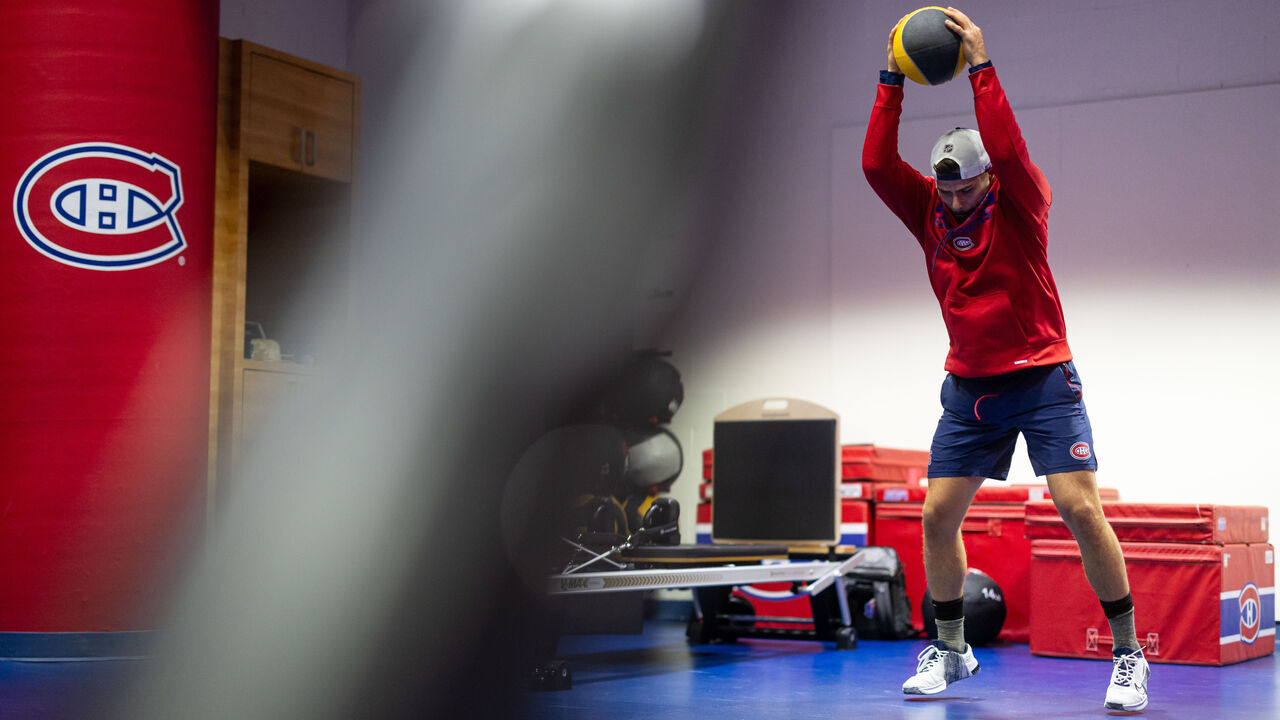
Hughes was in Vegas for the NHL/NHLPA player media tour, an annual event in which 30-plus NHLers fly to one city to participate in TV commercial shoots, media interviews, and other activities to promote the upcoming season.
theScore asked more than a dozen prominent players to list their favorite item in the CBA (spoiler alert: many shared Hughes' disdain for fitness testing) and to answer a fun hypothetical question: If you were commissioner for a day and had absolute power to add, subtract, or tweak a rule, what would it be?
Here's what they had to say.
Playoff format and cap
Pierre-Luc Dubois let out a sigh.
"I've got a lot," the Capitals forward said of his idea bank, flashing a full-toothed grin. "I've got to find which one will get me in less trouble.
"I like the wild card. I like the concept of that, but I do think that sometimes (the playoff matchups become predictable). The Oilers and the Kings have played in the first round for what feels like 12, 25 years. ... Some people want one-to-eight again. I think that'd be fun."
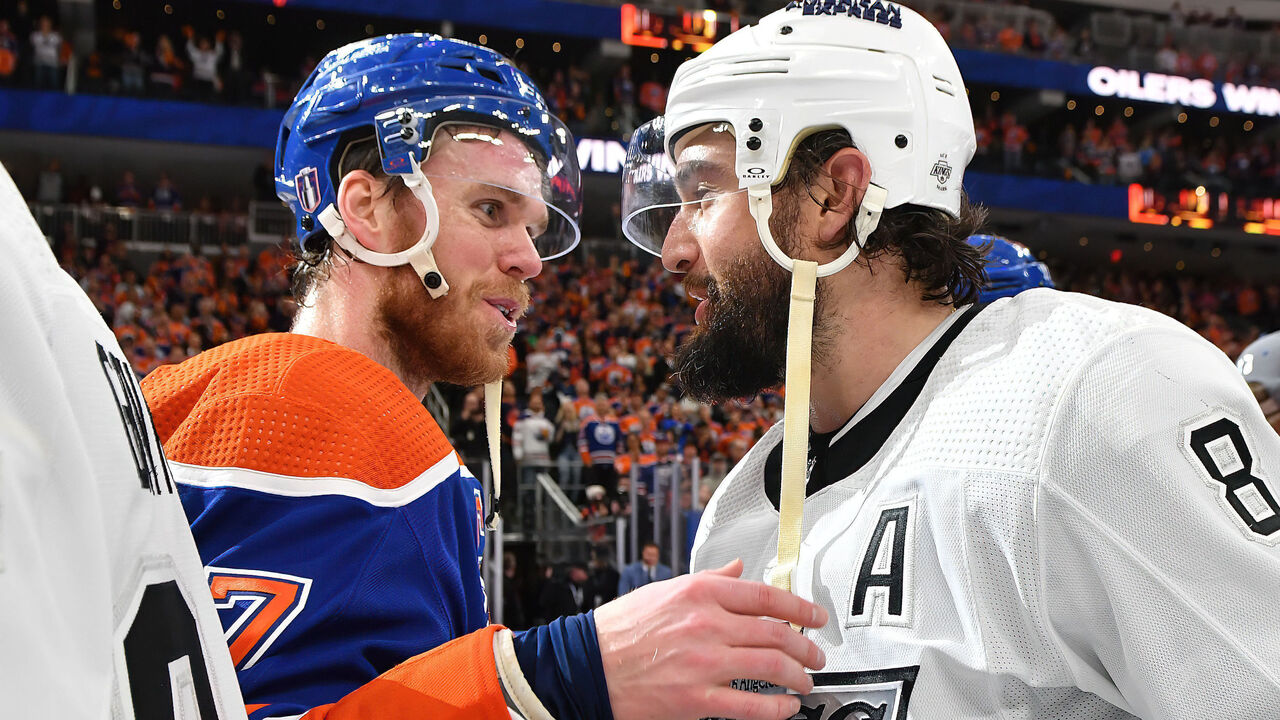
Edmonton and Los Angeles, one of Dubois' former teams, have met in the opening round of the playoffs for four straight years and could very well meet again next spring. The wild-card playoff format, in place since the 2013-14 season, optimizes for divisional matchups. Sometimes, like in the case of the Avalanche and Stars last campaign, it can pit two of the NHL's most stacked teams against each other in Round 1 simply because they share a division.
"Going one-to-eight in the playoffs," Flyers defenseman Travis Sanheim said of his pick, echoing Dubois' wish to return to a format in which the conference's No. 1 seed draws No. 8, No. 2 faces No. 7, and so on.
"It creates more memorable playoff series if you go one-to-eight," added Red Wings winger Patrick Kane, who won Stanley Cups in 2010, 2013, and 2015.
Sanheim, Kane, and Golden Knights star Jack Eichel are among a large group of players not sold on the idea of an expanded playoff field, whether through an NBA-style play-in round or by adding secured spots. Proponents of an expanded field point to untapped revenue and the league's maturation. The NHL has grown from 21 to 32 franchises during the era of 16 playoff teams, and it looks primed to reach 34 clubs (Atlanta? Houston?) in the near future.
"I'm more of a traditionalist on that," Eichel said. Expanding the field, the center noted, would devalue what's an indisputably gruelling regular season. "I'm a big believer in 'two points in October equal the same as two points in March,'" he said. "Being in the playoffs is a correlation of your entire season."
"Sixteen is a good number," Predators defenseman Brady Skjei said. "Right now, half the teams are making it, which is probably fair."
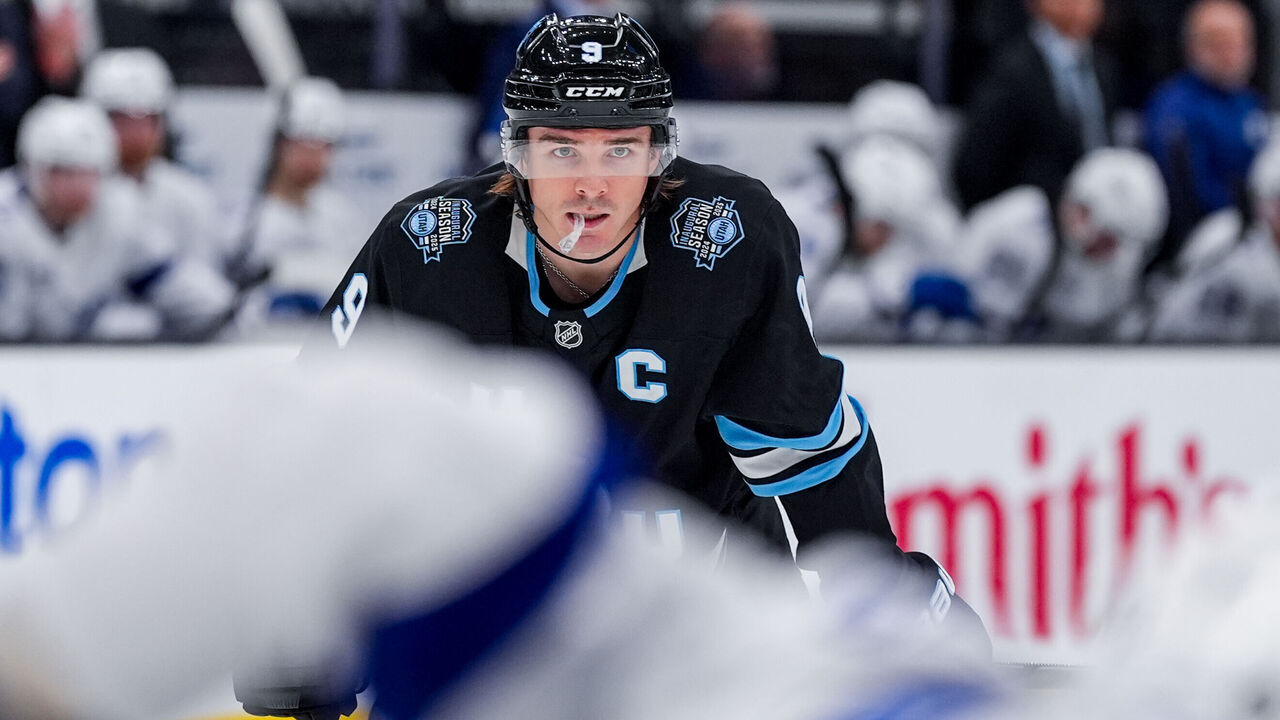
Clayton Keller disagrees. He thinks a play-in round would be "pretty cool."
"There's a lot of eyes on that when the NBA does it. It's a huge game, and if you're on that bubble, you have a chance to get in and make some noise," the Mammoth captain said. "Your team could get hot at the right time, and you never know what could happen."
However, Keller acknowledged the issue is above his pay grade and something NHL commissioner Gary Bettman has publicly expressed a distaste for.
The new CBA features one major change to the postseason landscape. Teams must ice a cap-compliant lineup in the playoffs starting in 2026. Translation: The days of exploiting the long-term injured reserve loophole are over.
"The playoff salary cap just makes sense to everybody," Bruins defenseman Charlie McAvoy said. "You shouldn't be able to field a roster that's $20 million over the cap, and I think everybody understood that. If there was a pressing issue that maybe you'd like to see (resolved), like immediately, that was probably the one. So, I think that was a good job by (the NHL and NHLPA)."
Overtime theories
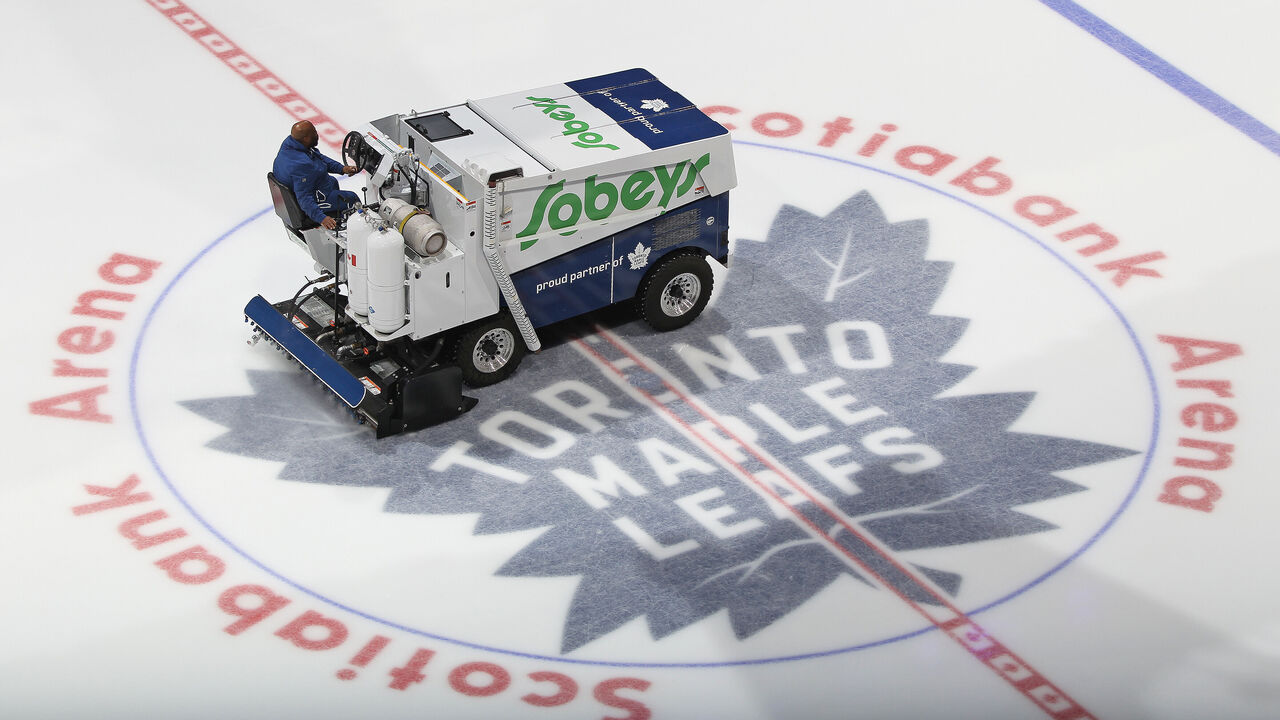
Anybody remember the original shootout setup? Miss it? Jordan Eberle does.
"I enjoyed the old shootout - when they used to flood the ice down the middle (of the rink) and get a clean sheet. I miss that," the Kraken forward said, recalling the NHL's fix for snowy ice in the early stages of his career in the early 2010s.
There isn't a lot Eberle finds endearing about the current shootout experience. The 35-year-old's in favor of extending the three-on-three OT period, like the NHL did for the 4 Nations Face-Off. The move from four-on-four to three-on-three back in 2015 has significantly reduced the number of shootouts. Of the 271 games that required extra time in 2024-25, 194 (or 71.6%) ended in OT.
"You don't see a lot of fancy, fancy stuff anymore," Eberle said of creativity in shootouts. "Also, it's funny how you can play a really good game - I've been in this spot - and you're the last guy to shoot and miss, and (it's amazing) how crappy you feel. I just wish we went to (a longer) three-on-three."
Skjei's on the same wavelength: Extend OT to 10 minutes so the vast majority of games end on a true hockey play. "No more shootouts," Dubois declared. "I think over time, some team is going to score at some point."
Off-ice fit check
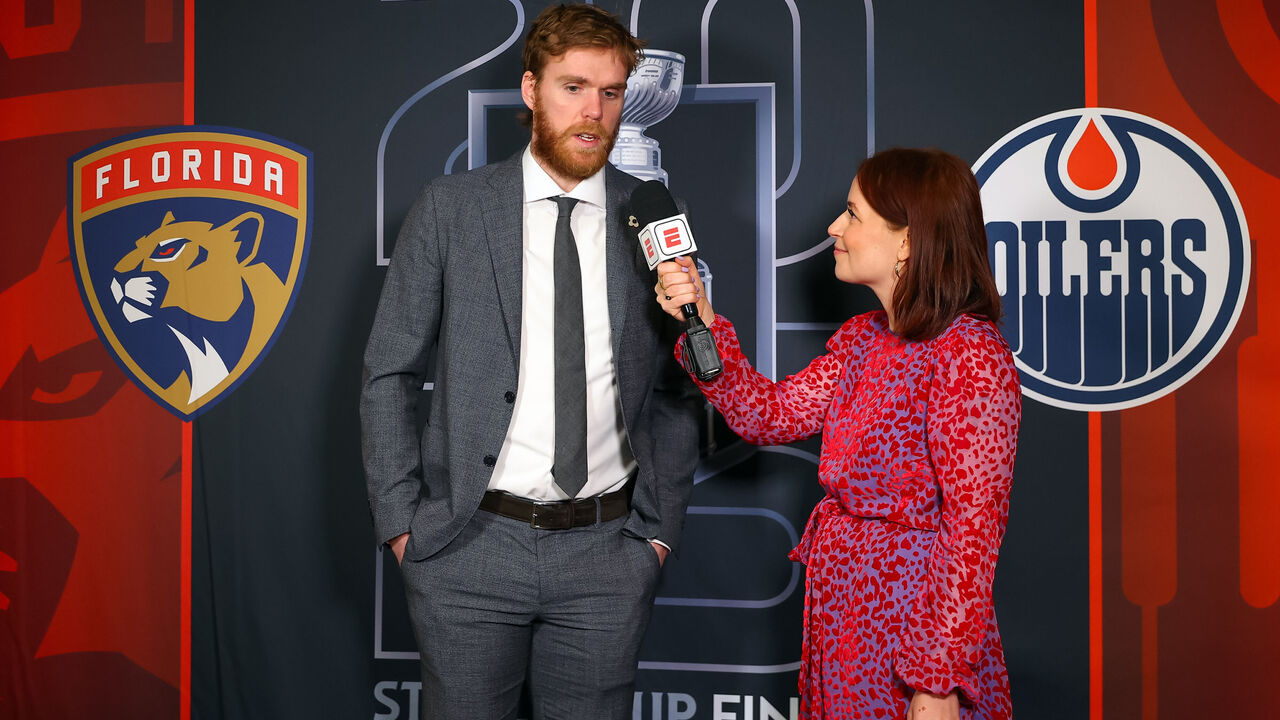
Scrapping fitness testing was overdue in the eyes of many surveyed - a decade overdue, Eberle joked. Like Hughes, Seth Jarvis dreads the testing process. Even in Vegas, a full week out from training camp, the Hurricanes forward couldn't get his mind off what was waiting for him back in Carolina.
"If you know anything about Rod, it's not going to be easy," a smirking Jarvis said of his famously jacked head coach, Brind'Amour.
Easing the dress code was another rule change the union pushed hard for during CBA negotiations. According to the memorandum of understanding, "players are required to dress in a manner that is consistent with contemporary fashion norms," but are otherwise free to wear whatever. Effective immediately, teams can't propose or enforce a game-day suit policy.
"I enjoy wearing a suit," Sabres sniper Tage Thompson said. "But it's one of those things where you see other sports leagues - NFL, NBA - and (it's obvious the casual vibe) allows guys to express their personalities a little bit more. That's something that fans are starving for - that behind-the-scenes look of not just you as an athlete but also you as a person."
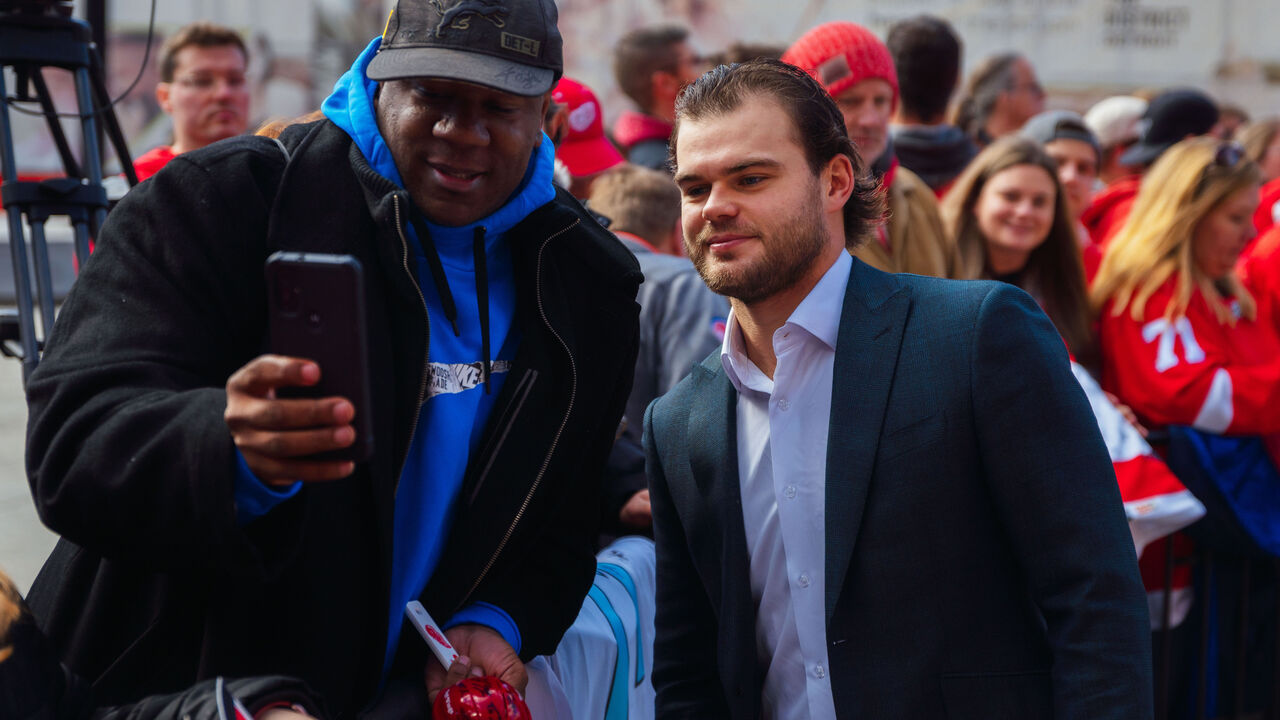
Fans will no doubt see a more relaxed NHLer walking into the arena moving forward. ("If they start letting sweats and sweaters into the rink, I'm going to be all over that," Jarvis said.) That sounds great in theory, but what are these players, especially the veterans, going to do with all of their expensive suits?
"Some guys who have been playing 15 years probably have like 50 suits or something crazy," Devils center Jack Hughes remarked before hinting he'll be rotating between the classic hockey-player black suit and less formal wear.
"We have some guys who have pretty good style. Let 'em loose a little bit," Skjei said of the Preds. "But I won't be one of those guys, I'll tell you that."
Athletes are creatures of habit, and habits die hard. "Basically, my whole life, when you get ready for a game, you put on a suit. I think that helps with my mentality going into the game," Red Wings forward Alex DeBrincat said.
Calendar, goalies, and alumni
Starting in 2026-27, the NHL regular season will begin earlier (late September) and end earlier (early to mid-June) - a "pretty ideal" calendar, according to Cale Makar. The superstar defenseman noted the absurdity of the Avs' nearly three-month playoff run in 2022. (They hoisted the Cup on June 26!)
Sanheim is glad the regular season's moving from 82 to 84 games in '26-27. The blue-liner's rationale: players tend to arrive in their NHL cities in late August for captain's skates, which act as an unofficial start to training camp. But players don't compete in a meaningful game until early October. "I play a lot of minutes, so to go and play four or five preseason games that mean nothing, I'd rather tack it onto the regular season and put my energy into that," Sanheim said.
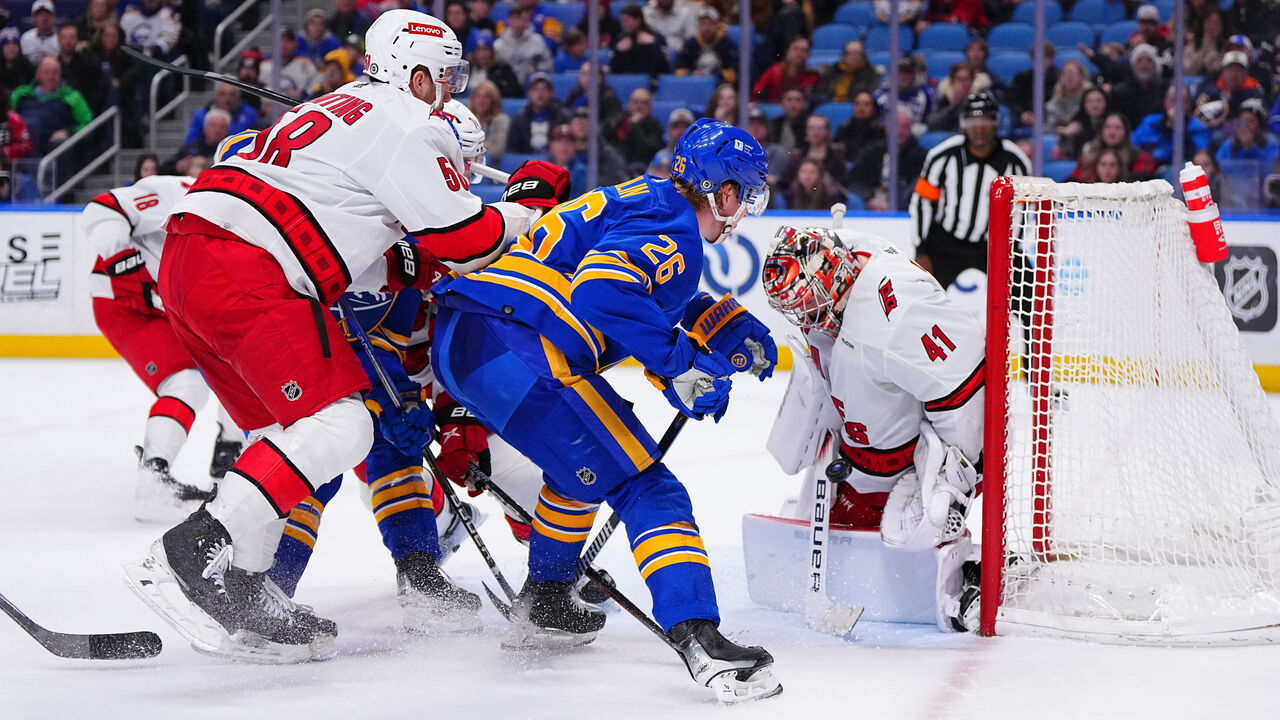
Jake Oettinger and Linus Ullmark, perhaps unsurprisingly given the uniqueness of the position they play, brought up goaltending-specific issues:
Dallas' Oettinger loves the professionalization of emergency backup goalies (or EBUGs). Having a third full-time goalie on the team as of '26-27 will reduce the burden on workhorse No. 1s. Starters should be resting late in the season, not facing slap shots in practice.
Ottawa's Ullmark wants better representation in the league's Situation Room in Toronto. Too often, he said, goaltender interference is being judged without the perspective of a former goalie. Like so many fans and media, Ullmark is perplexed by the inconsistency of interference calls.
Blues forward Robert Thomas provided the most thoughtful take on the new CBA, shouting out improved health and pension benefits for NHL alumni.
"There were so many guys who did so much for the league and the players in the past," Thomas said. "Trying to continue to make (alumni health) a No. 1 priority moving forward is something that a lot of players feel really good about."
John Matisz is theScore's senior NHL writer. Follow John on Twitter/X (@MatiszJohn) or contact him via email ([email protected]).